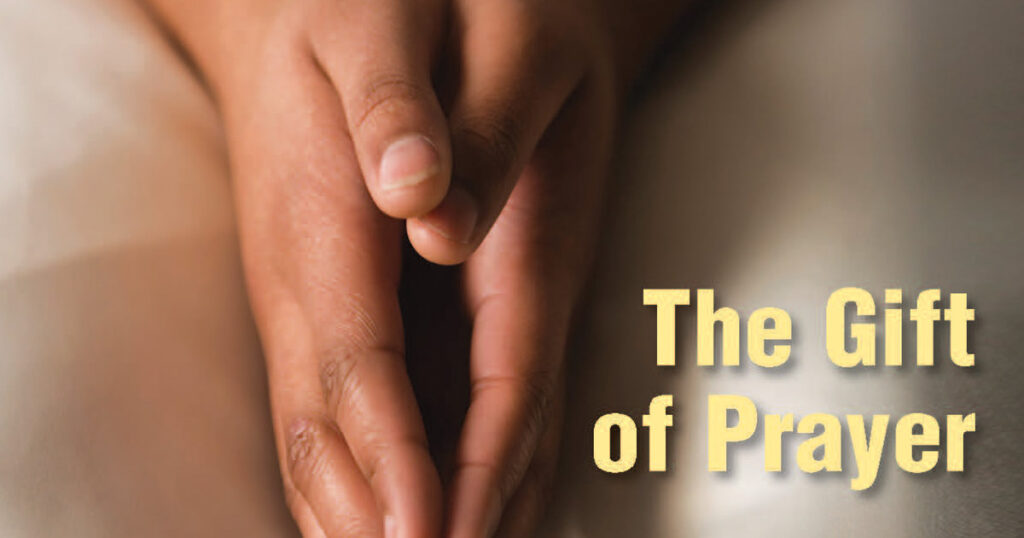By Jennifer Jordan
Did you notice the “lowly” collect last Sunday?
In the Divine Service, the collect (pronounced COL-lect) is the short prayer just before the Old Testament reading. It echoes the theme of the day’s appointed readings and “collects” the prayers of the people into one, unified request prayed by the pastor on behalf of the congregation.
This short, ancient form of prayer (sometimes also known as the “Prayer of the Day”) shows us that our fears and faults today are the same as those faced by all Christians in every time and place. We are not alone in our weariness, fears, sin or our need for forgiveness. We therefore pray the collect as a collective, corporate prayer.
An Education in How to Pray
A collect has five parts. Turn to the Collect for Peace (LSB, p. 251) to see them:
An address: O God,
An acknowledgment of who God is and what He has done: From whom come all holy desires, all good counsels, and all just works,
A petition: Give to us, Your servants, that peace which the world cannot give,
A plea: That our hearts … being defended from the fear of our enemies, may live in peace and quietness,
A trinitarian conclusion praising God’s eternal reign: Through Jesus Christ, Your Son, our Lord, who lives and reigns with You and the Holy Spirit, one God, now and forever.
There are early versions of this type of prayer in I and II Maccabees in the Apocrypha, but the collect as we know it today dates back to at least the fifth century. Thomas Cranmer, the first Anglican archbishop of Canterbury, included English translations of many of these earliest collects when he composed the Book of Common Prayer in 1549.
Finding Comfort in the Collect
Lutheran Service Book contains many of these early collects as well as newer ones. Our collection of collects spans the history of Christianity. Turn to Page 305 in LSB to use them in your own devotions.
Like the Reformation Christians of Cranmer’s time, we regularly need God’s help to “read, mark, and inwardly digest” the Word (as we pray in the collect for the Second Sunday of Advent). We also sometimes despair of God’s love and need the reassurance found in the collect for Ash Wednesday: “God hates nothing that He has made.”
When you’re faced with a concern that bears repeated prayer, you may find comfort in writing your own collect — for instance, a collect for a damaged friendship:
1. Begin with the address: O God,
2. Then remind God of His gift of friendship as described in the Bible: Who gave Jonathan as a friend to Your servant David and instituted friendship as a comfort in life…
3. Next, ask God for what you desire: Forgive us where our sin has hurt others, and grant us grace to forgive friends who have hurt us.
4. Now, state the God-pleasing outcome you hope will come to pass: That we may work together in Your church in peace, serving our neighbors as You have commanded.
5. Close in the name of Jesus: This we ask in the name of Jesus, Your only Son, who reigns with You and the Holy Spirit, now and forever.
Because collects are corporate prayer, a collect always uses “we,” just like the Lord’s Prayer, never “me.” You’re likely not the only one experiencing this need — others surely are as well.
This simple prayer takes our own needs and pain and unites them with the prayers of everyone in the Body of Christ. We are not alone. That’s something beautiful to think about.

This article originally appeared in the May 2024 issue of The Lutheran Witness.





I thought collect prayers were patterned after the Lord’s Prayer, using Scripture to pray back to God. Not merely historical tradition, but Scriptural in content & model.
A similar simple prayer structure can be remembered by the acronym ACTS:
Adoration, acknowledging God’s stature
Confession, recognizing that we are undeserving
Thanksgiving, for some blessing(s) we nevertheless enjoy
Supplication, asking for God’s mercies concerning a particular situation
Example: Lord, you are God above all. Forgive us for forgetting your abiding presence. Thank you for your love in Christ, by whom we have a sure hope in these difficult times. Please be with our friend who is recovering from a serious accident, and with all those who are now providing medical care. In the name of Jesus.
I suppose for me personally, it is the “Lord’s Prayer” which I love to recite, and it is not just a “model” prayer, or a “pattern” or “Suggested” prayer format. I appreciate it because it is of itself a complete prayer, uttered by the Lord Jesus Himself. Than, I pray to the Lord using personal words, vernacular speech, reverent, but as honest and real as I can, knowing that in prayer I am standing in the presence of an all knowing God who already knows my name, my heart, my motives, my secret sins. I think about the words of James 4: “God resists the proud, but gives grace to the humble.” Lofty words, long winded prayers, phoned hyperbole, pretentious prayers, self justifying prayers, all have no place before God. I think Prayer should be genuine, personal, humble. I believe we should pray frequently during the day, as we work, as we eat, as we drive our cars, especially at times of trial and temptation when our thoughts become distant to the Lord, sinful, or carnal. Spiritual warfare in the life of a believer is unrelenting, but steady prayer and fellowship with the Lord and an ear to the Holy Spirit helps us remain steadfast in our faith. Soli Deo Gloria